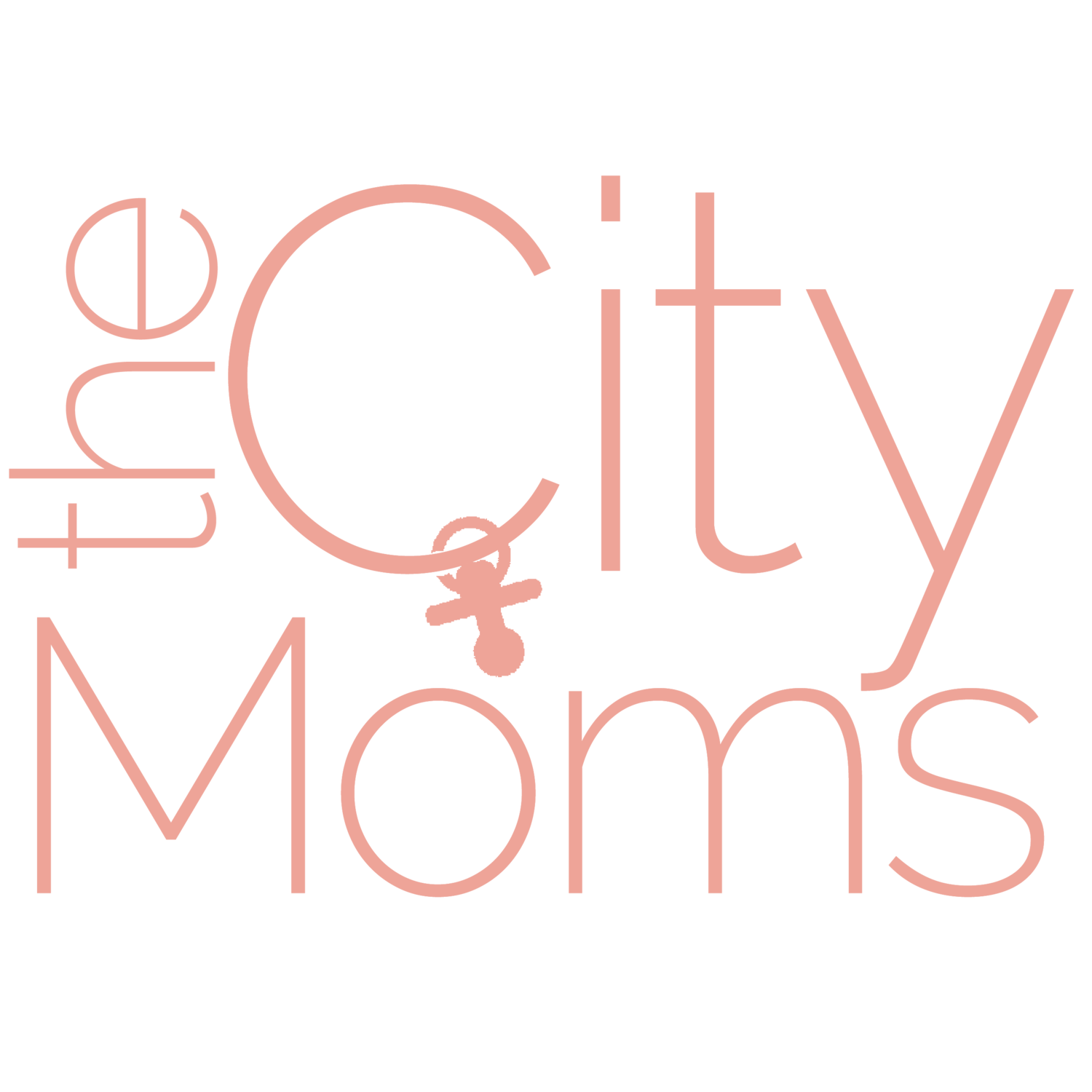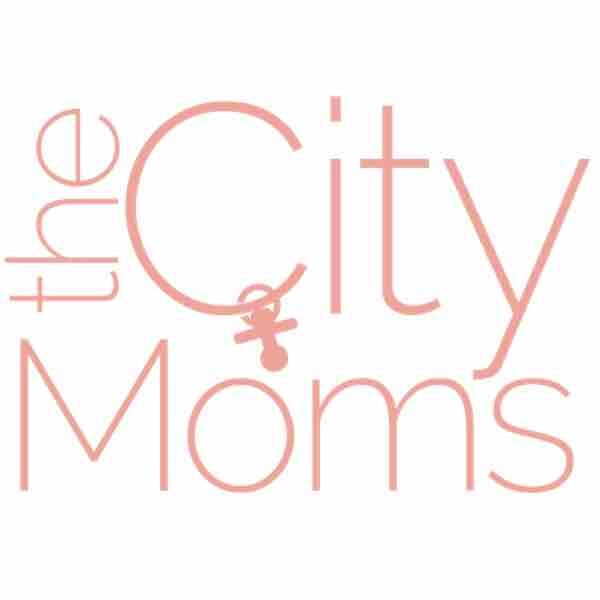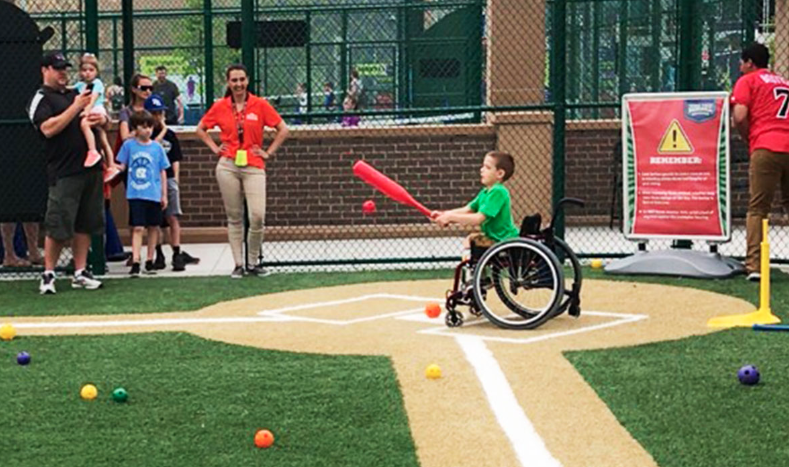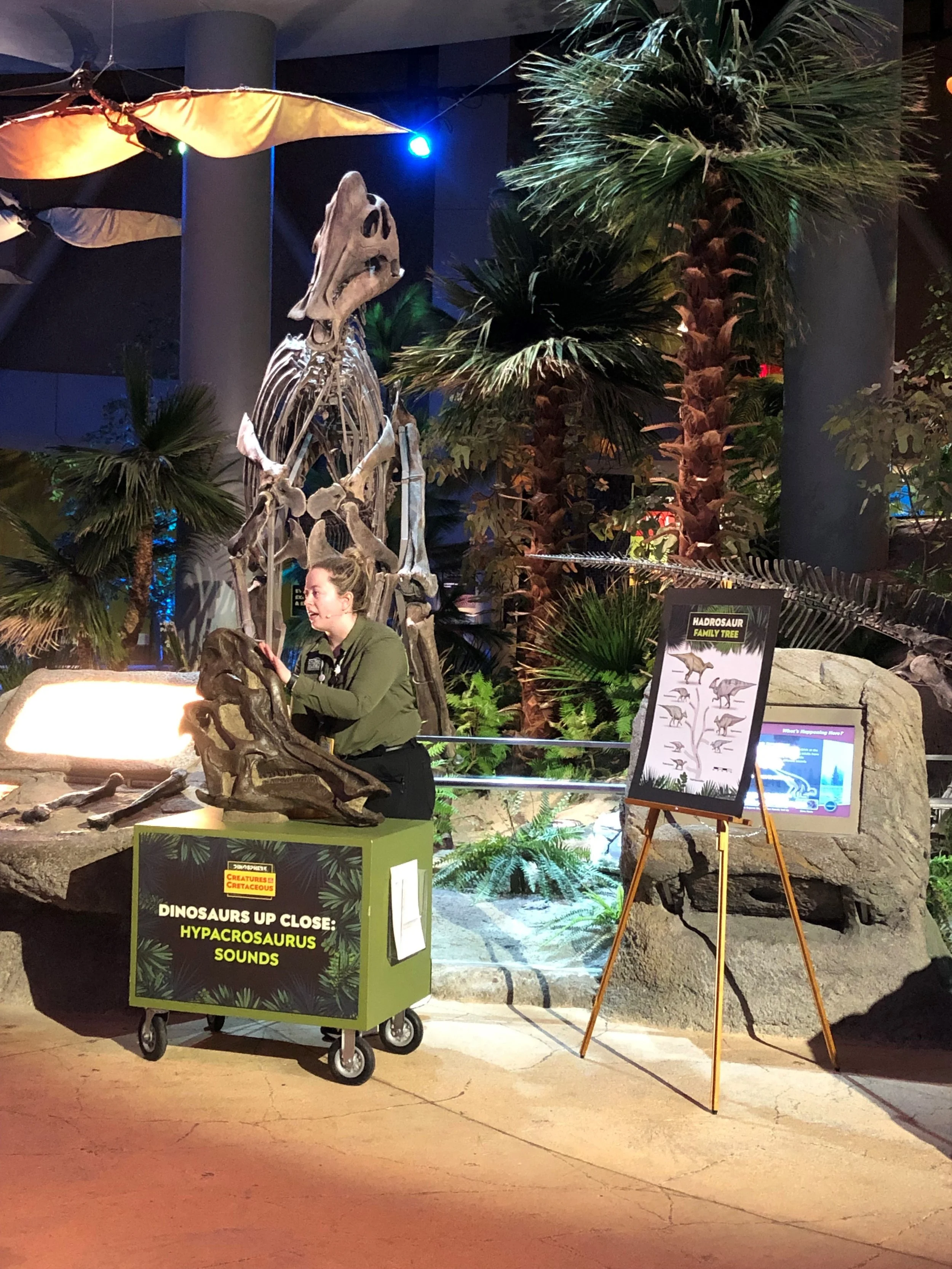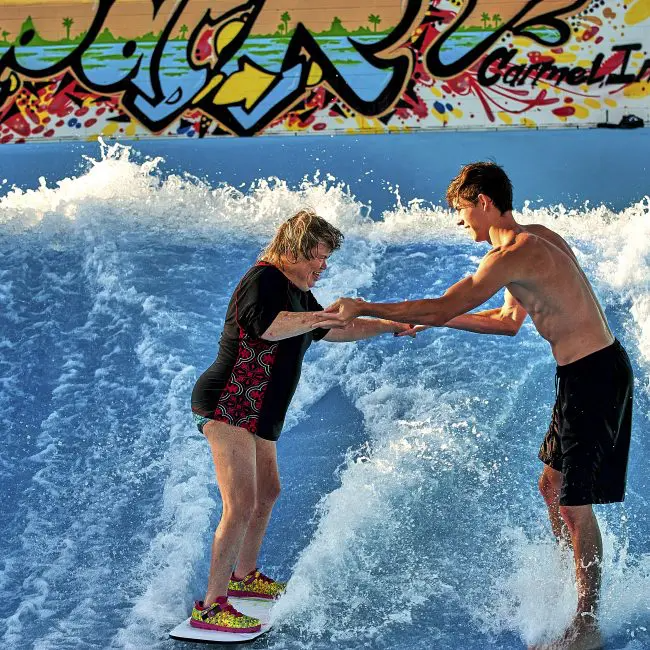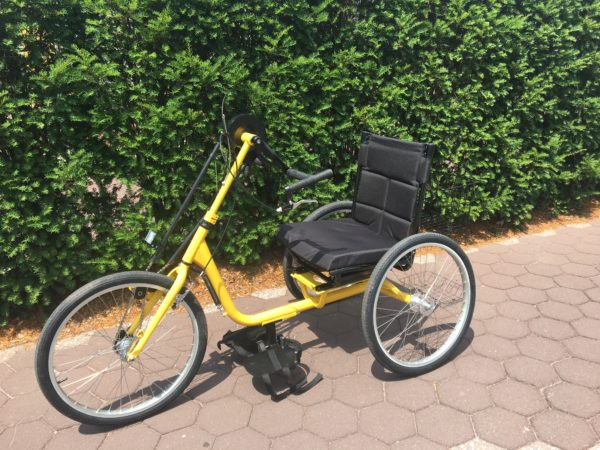Welcoming all: Adaptive programming in Indianapolis
If adaptive programming is a phrase you’re unfamiliar with, we guarantee you’ve seen an example of it. That motorized chair lift on the side of your neighborhood pool? It assists individuals with mobility issues as they get in and out of the water. Your local movie theater might host a sensory-friendly screening, the last stage play you attended probably had a captioning or audio description option. If you have an updated park in your neighborhood, it might have a ramp to make the structure accessible.
A wheelchair lane next to the pedal car lanes lets everyone race together. (Image courtesy The Children’s Museum)
These examples fall under the extensive umbrella of adaptive programming - the idea that community activities and resources should be available to all individuals, including those with physical or mental differences. Many organizations are stepping in to make this happen here in Indy and we’re honored to highlight their efforts.
An accessible field means everyone can take a swing at the Riley Children’s Health Sports Legends Experience®. (Image courtesy The Children’s Museum)
Not only do we have the world’s largest children’s museum at our doorstep, but they’re also making their experiences accessible to all. Betsy Lynn, The Children’s Museum of Indianapolis’s Operations Project Manager and Accessibility Coordinator, describes one example of how the staff develops programming for various audiences: “The staff/coaches in the Riley Children’s Health Sports Legends Experience® have done a lot of research to offer equipment and programming that is accessible to a wide audience, using multiple senses. For example, they use soccer balls with added bells and tennis balls with streamer tails for programming with visitors who are blind or have low vision.” This equipment and the accessibility of the sports experience were highlighted at the July 27th Extended Hours Event - their third such event as they highlight various adaptive programming areas around the museum. If you missed that event, no worries - all of the adaptive equipment in the sports experience is available at any time!
Want to know even more about the museum’s adaptive offerings? Visit the Accessibility page on their website, including their sensory map and social story.
Inside the museum, the new Dinosphere® takes a universal design approach to allow visitors to engage in several ways, including through touch, sight, or hearing. For example, the dinosaur communication program uses a replica of a Hypacrosaurus skull. The museum altered a cast of the skull so that it could be used to demonstrate sounds and vibrations that would have been used by Hypacrosaurs to communicate.
This adapted dinosaur skull lets visitors engage using touch and hearing. (Image courtesy The Children’s Museum)
Look no further than Carmel Clay Parks and Recreation (CCPR) for year-round adaptive recreation programming. The Centers for Disease Control and Prevention have found that adults with physical disabilities are less likely to engage in physical activity than adults without a disability, leading to potential physical and mental health complications.
Check out their fall program guide to see all the options! Looking at an activity that isn’t currently accessible? Request the modifications you need through their online form.
CCPR aims to address that gap and improve everyone’s physical and mental health by offering about 50 programs/events per season, from preschool swim lessons and youth taekwondo to adult social programs. Each program is specifically designed for individuals with intellectual or developmental disabilities. Kelvin Solares, the Inclusion Program Supervisor, highlighted two unique offerings: Barrier-Free Theatre (where participants write, rehearse, and perform an original play) and the FlowRider® (an adaptive surf simulator that staff can adapt to allow anyone who fits the height requirements to ride).
The FlowRider® at The Waterpark. (Image courtesy of CCPR)
How about an outdoor, inclusive way to explore downtown? With Indiana Pacers Bikeshare adaptive bicycle program, everyone can! The program offers four different styles of adaptive bikes and specially trained staff to fit each rider on the right bike.
If you’re looking for a sensory-friendly museum on the north side, Connor Prairie devotes the second Sunday every month, from 10 am-12 pm, to sensory-friendly hours: loud noises are off, bright lights are dimmed, and routes to the quiet spaces are highlighted. (Have Deaf family members? Check out the Deaf Heritage Day in October with American Sign Language interpreters throughout the grounds!)
Know an athlete seeking adaptive team sports? Rehabilitation Hospital of Indiana offers a variety of sports and clinics for amateur or professional athletes of all ages through their Adaptive Sports Program. Participants can pick various sports, from wheelchair basketball and lacrosse to beep baseball and sled hockey. (There’s even a wheelchair/standing tennis combination, which can be played simultaneously by wheelchair users and non-disabled athletes!)
The Upright Hand Tricycle is specifically designed to be powered by hand. (Image Courtesy of Indy Cultural Trail Org)
Indianapolis’s motto is “Indy welcomes all,” a charge that these organizations take to heart as they strive to be accessible. This list barely scratches the surface of all that our city has to offer, so tell us your favorite adaptive option!
Looking for more? Check out more accessible programming in Indy:
